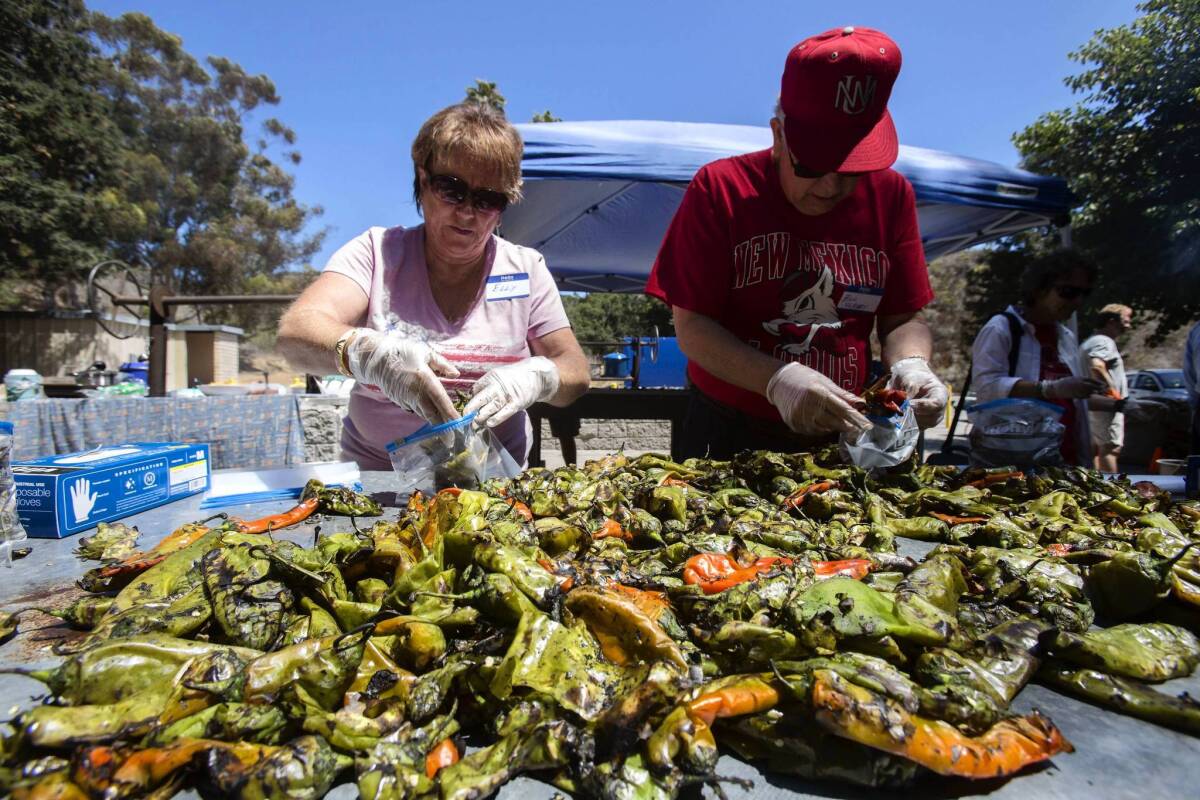The cult of the Hatch green chile

- Share via
Once relatively unknown outside of its home area, the Hatch green chile has become a cult item in Southern California. But what exactly is a Hatch chile?
There is no chile variety called Hatch. Hatch chiles include a whole family of long green peppers from the species Capsicum annuum (the same peppers when fully mature turn red and are dried). They range tremendously in spiciness and flavor. You may have seen Anaheim chiles in the supermarket that look just the same, but they are an exceedingly bland member of the clan.
Instead, the name “Hatch” refers to where these chiles are grown: the area around a tiny town in the Mesilla Valley in southwestern New Mexico, just outside of Las Cruces. Similar green chiles are grown all over the state, and each area has its own passionate supporters, but Hatch has become the most recognized.
That popularity has led to claims of widespread copycatting. While there are a lot of chiles grown in Hatch, there almost certainly aren’t enough to account for everything that is sold under that name these days.
New Mexico growers say peppers from all over the Southwest and even Mexico are being sold as Hatch now, and as a result, they are finding it harder and harder to compete. According to the New Mexico Chile Task Force, between 1992 and 2011 chile plantings in the state plummeted from 34,500 acres to 9,500 acres.
Indeed, last year the state legislature passed a law making it illegal to sell any chile as New Mexican that wasn’t actually grown there. Though legally that law can be enforced only within the state, anyone selling what are claimed to be New Mexico chiles should have paperwork available supporting that.
—Russ Parsons
More to Read
Eat your way across L.A.
Get our weekly Tasting Notes newsletter for reviews, news and more.
You may occasionally receive promotional content from the Los Angeles Times.







